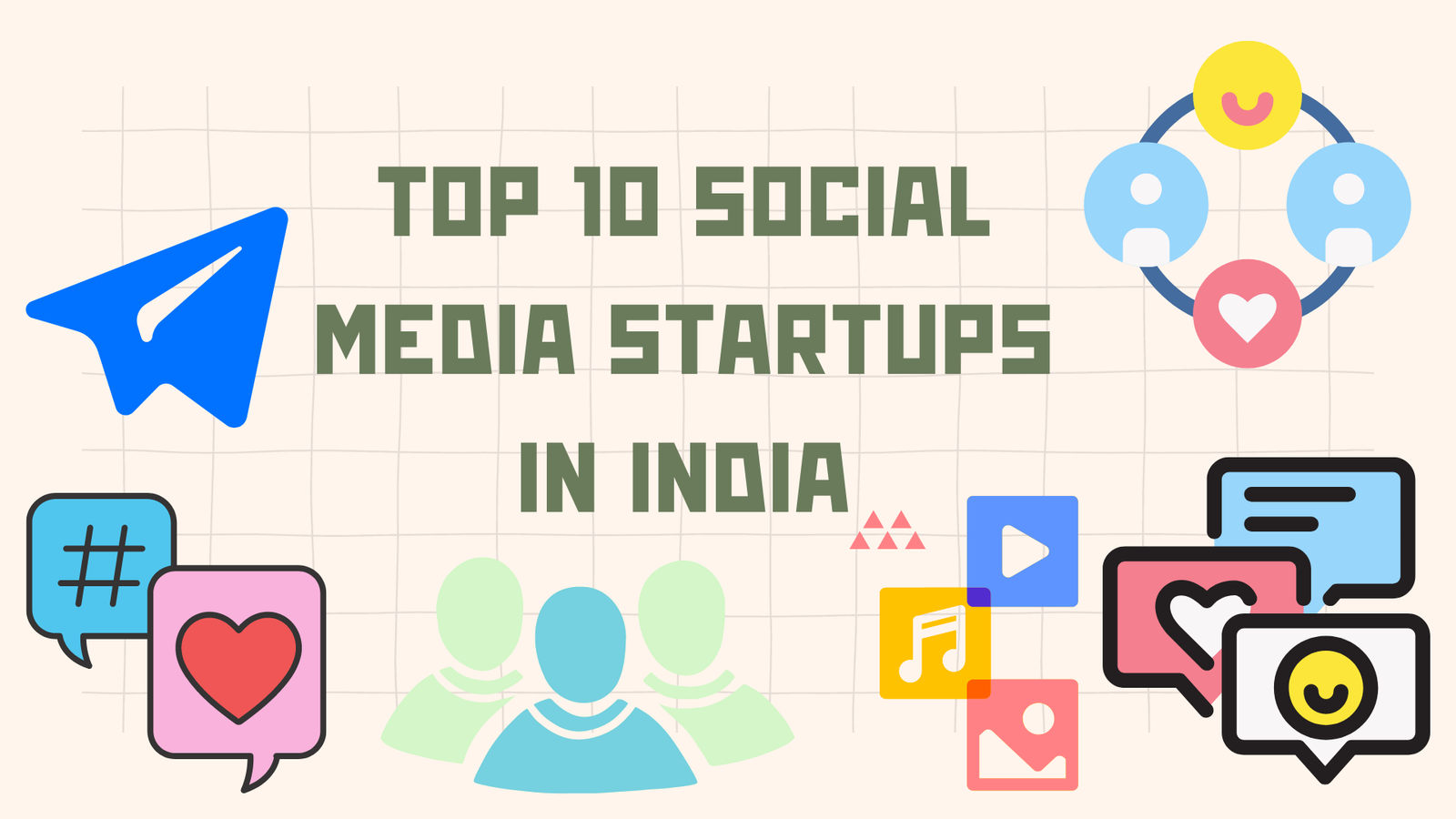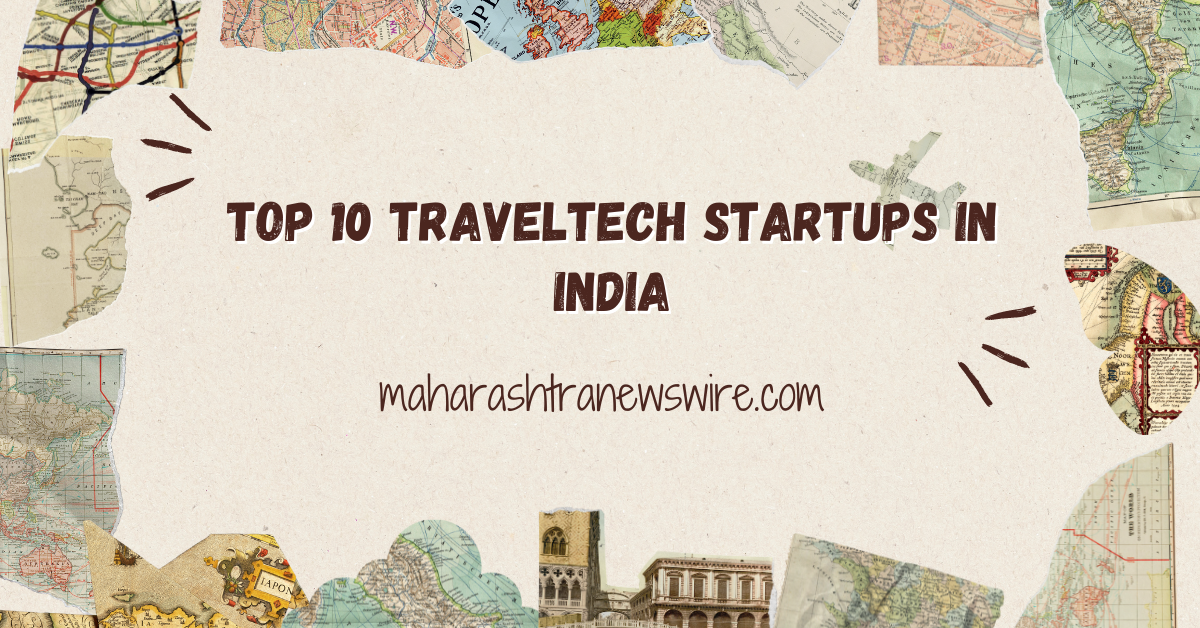The landscape of social media in India has witnessed a dynamic transformation with the rise of innovative startups catering to diverse linguistic and cultural preferences of its vast population. These platforms have not only filled gaps left by global giants but have also created unique spaces for expression, connection, and entertainment. From short video-sharing apps to microblogging platforms, each startup has carved its niche, fostering communities and amplifying voices across the country.
1. ShareChat
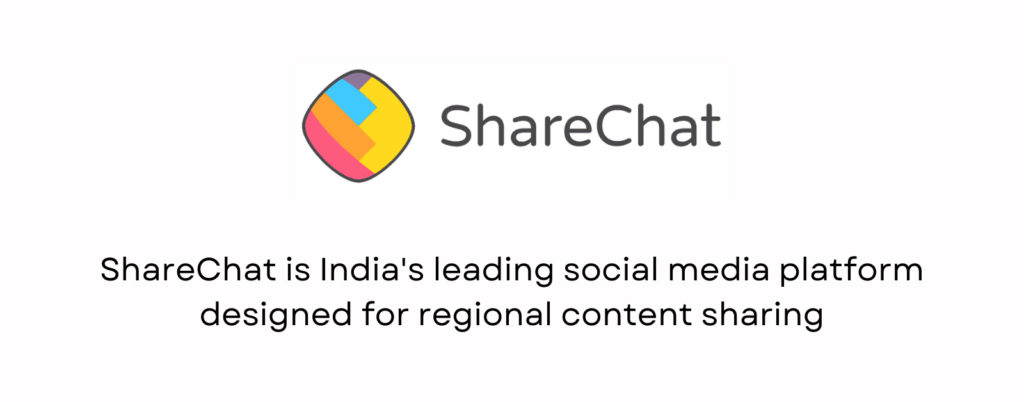
ShareChat is India’s leading social media platform designed for regional content sharing. Founded in 2015 by Ankush Sachdeva, Bhanu Pratap Singh, and Farid Ahsan, ShareChat has its headquarters in Bangalore, Karnataka. The platform supports content creation and sharing in multiple Indian languages, catering primarily to non-English speaking users. ShareChat’s key services include short video sharing, messaging, and community building.
| Details | Information |
|---|---|
| Founder | Ankush Sachdeva, Bhanu Pratap Singh, Farid Ahsan |
| Founded | 2015 |
| Headquarters | Bangalore, Karnataka |
| Key Services | Regional content sharing, short videos, messaging |
| Website | sharechat.com |
It allows users to create and share content in various regional languages. With over 160 million active users, ShareChat offers features like messaging, video sharing, and news aggregation, catering primarily to non-English speaking internet users in India.
2. Chingari
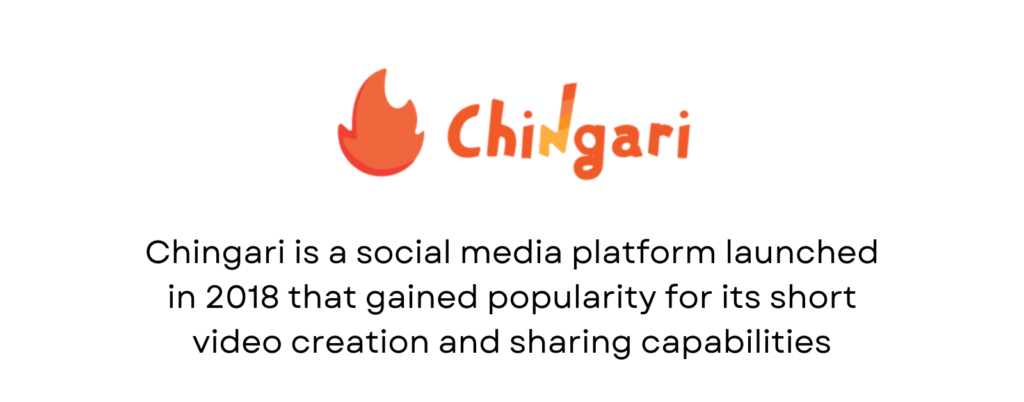
Chingari is a social media platform launched in 2018 that gained popularity for its short video creation and sharing capabilities. Founded by Biswatma Nayak and Siddharth Gautam, Chingari allows users to create, share, and discover short videos in various Indian languages. The app saw significant growth after the ban of TikTok in India, positioning itself as a viable alternative.
| Details | Information |
|---|---|
| Founder | Biswatma Nayak, Siddharth Gautam |
| Founded | 2018 |
| Headquarters | Bangalore, Karnataka |
| Key Services | Short video creation and sharing |
| Website | chingari.io |
Chingari supports content creation in multiple Indian languages and offers features like audio and video editing tools, special effects, and a social feed. It has garnered a large user base, particularly after TikTok’s ban in India, and continues to evolve with new features to enhance user engagement and content diversity.
3. Josh
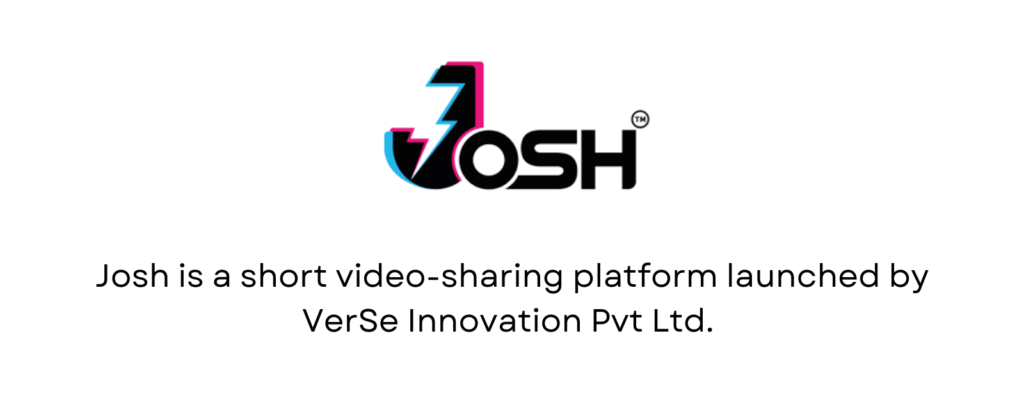
Josh is a short video-sharing platform launched by VerSe Innovation Pvt Ltd. It became popular for its wide range of content categories including dance, comedy, and education. Founded in 2020, Josh quickly amassed a large user base by focusing on local content creators and regional languages. The platform has its headquarters in Bangalore, Karnataka.
| Details | Information |
|---|---|
| Founder | VerSe Innovation Pvt Ltd |
| Founded | 2020 |
| Headquarters | Bangalore, Karnataka |
| Key Services | Short video sharing across various genres |
| Website | josh.app |
The app features a wide range of content, from dance and music to comedy and education, and has attracted a large user base, including numerous influencers and content creators. Josh emphasizes local content, aiming to empower regional talent and enhance digital creativity in India.
4. Trell
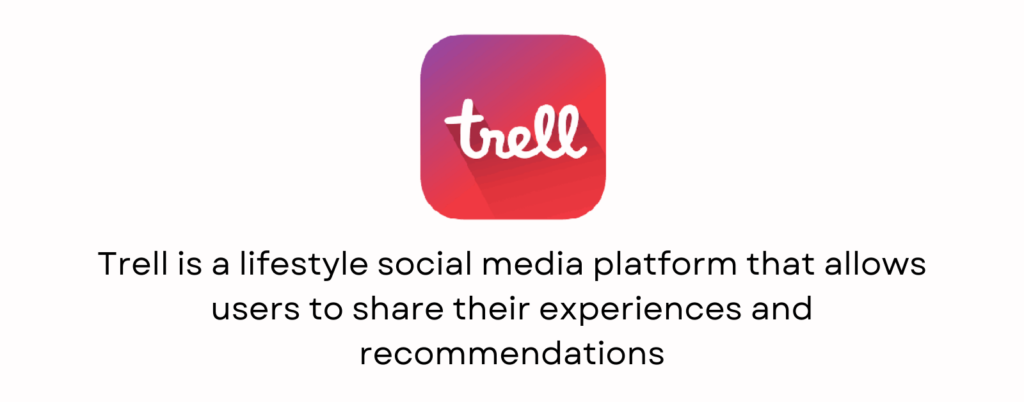
Trell is a lifestyle social media platform that allows users to share their experiences and recommendations on travel, food, and fashion through short videos. Founded in 2017 by Pulkit Agrawal, Bimal Kartheek Rebba, and Arun Lodhi, Trell has grown rapidly by focusing on visual storytelling and user-generated content.
| Details | Information |
|---|---|
| Founder | Pulkit Agrawal, Bimal Kartheek Rebba, Arun Lodhi |
| Founded | 2017 |
| Headquarters | Bangalore, Karnataka |
| Key Services | Lifestyle content sharing, short videos |
| Website | trell.co |
It integrates short-form videos, user reviews, and a marketplace, allowing users to shop directly from the app. Trell’s focus on vernacular content and user-generated recommendations has helped it gain traction, particularly in non-metro regions, promoting digital inclusivity and localized content discovery in India.
5. Moj
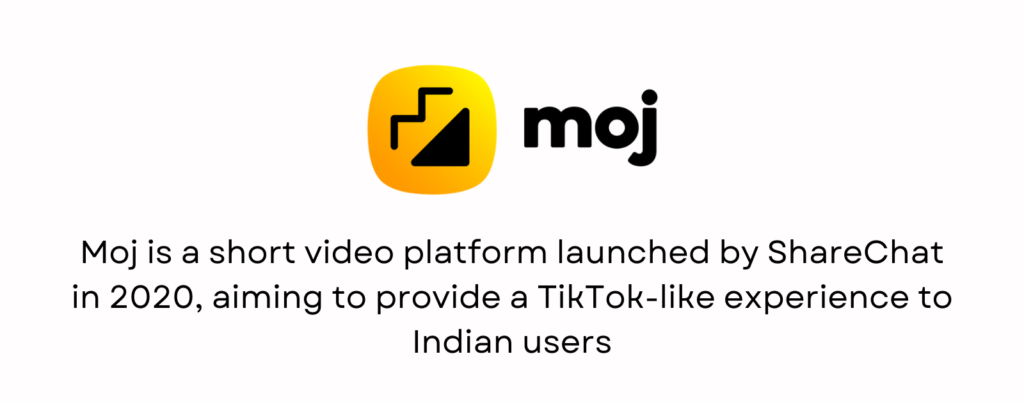
Moj is a short video platform launched by ShareChat in 2020, aiming to provide a TikTok-like experience to Indian users. It offers tools for video creation, editing, and sharing, with a focus on local languages and cultural content. Moj quickly gained popularity amidst the ban on TikTok in India and continues to expand its user base.
| Details | Information |
|---|---|
| Founder | Ankush Sachdeva, Bhanu Pratap Singh, Farid Ahsan |
| Founded | 2020 |
| Headquarters | Bangalore, Karnataka |
| Key Services | Short video creation and sharing |
| Website | mojapp.in |
Moj rapidly gained popularity, amassing millions of users and creators by offering localized content and engaging features like filters, effects, and music. It serves as a key platform for digital expression and entertainment in India, fostering a vibrant community of content creators and viewers. Moj’s success underscores the growing demand for regional content in the Indian digital ecosystem.
6. Roposo
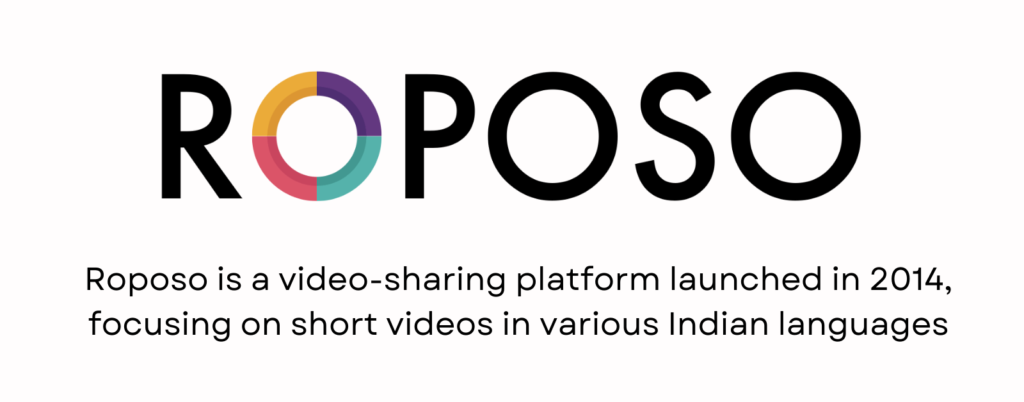
Roposo is a video-sharing platform launched in 2014, focusing on short videos in various Indian languages. Acquired by Glance in 2019, Roposo provides tools for video creation, editing, and sharing, alongside features for discovering and following creators. The platform has become popular for its diverse content and user-friendly interface.
| Details | Information |
|---|---|
| Founder | Mayank Bhangadia, Kaushal Shubhank |
| Founded | 2014 |
| Headquarters | Gurugram, Haryana |
| Key Services | Short video sharing, content discovery |
| Website | roposo.com |
The platform gained significant traction after TikTok was banned in India in 2020. Acquired by Glance, a subsidiary of InMobi, Roposo aims to empower creators and offer engaging content, emphasizing Indian culture and entertainment.
7. Bolo Indya
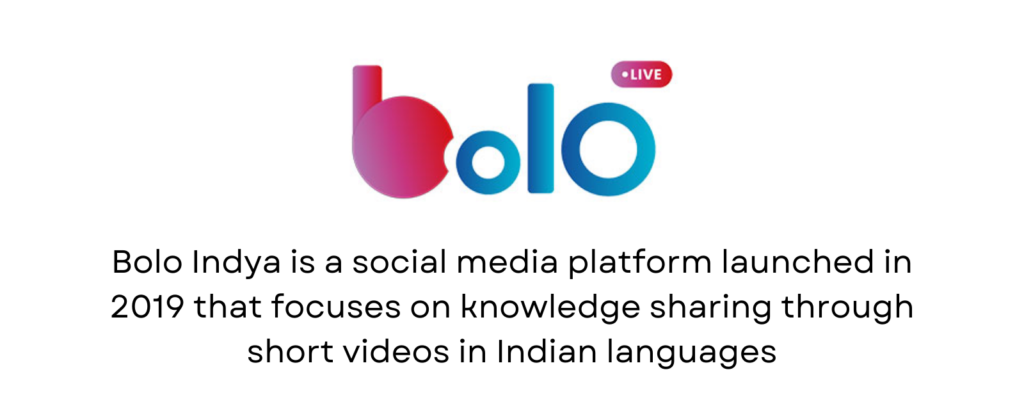
Bolo Indya is a social media platform launched in 2019 that focuses on knowledge sharing through short videos in Indian languages. Founded by Varun Saxena, Bolo Indya allows users to create and consume content on topics such as education, technology, and lifestyle. The platform emphasizes building communities around shared interests.
| Details | Information |
|---|---|
| Founder | Varun Saxena |
| Founded | 2019 |
| Headquarters | Gurugram, Haryana |
| Key Services | Knowledge sharing through short videos |
| Website | boloindya.com |
It focuses on user-generated content in regional languages, offering a space for creators to share knowledge, entertainment, and lifestyle videos. The platform aims to empower local influencers and promote digital inclusivity across diverse linguistic communities in India.
8. Mitron

Mitron is a short video-sharing platform launched in 2020, similar to TikTok, that gained popularity in India. Founded by Shivank Agarwal and Anish Khandelwal, Mitron allows users to create and share short videos across various categories. The platform caters to regional language users and aims to provide a seamless video-sharing experience.
| Details | Information |
|---|---|
| Founder | Shivank Agarwal, Anish Khandelwal |
| Founded | 2020 |
| Headquarters | Bangalore, Karnataka |
| Key Services | Short video creation and sharing |
| Website | mitron.tv |
It emerged as a local alternative to TikTok, enabling users to create and share 15-second videos. The app quickly gained popularity for promoting Indian content and providing a platform for creative expression in regional languages.
9. Koo

Koo is a microblogging social media platform launched in 2020 that gained popularity as an alternative to Twitter in India. Founded by Aprameya Radhakrishna and Mayank Bidawatka, Koo allows users to share their thoughts and opinions in multiple Indian languages. The platform focuses on enabling freedom of expression and connecting users based on shared interests.
| Details | Information |
|---|---|
| Founder | Aprameya Radhakrishna, Mayank Bidawatka |
| Founded | 2020 |
| Headquarters | Bangalore, Karnataka |
| Key Services | Microblogging in Indian languages |
| Website | kooapp.com |
It allows users to share updates in multiple Indian languages, positioning itself as a local alternative to Twitter. Koo aims to foster digital inclusivity and promote regional language content.
10. Loco
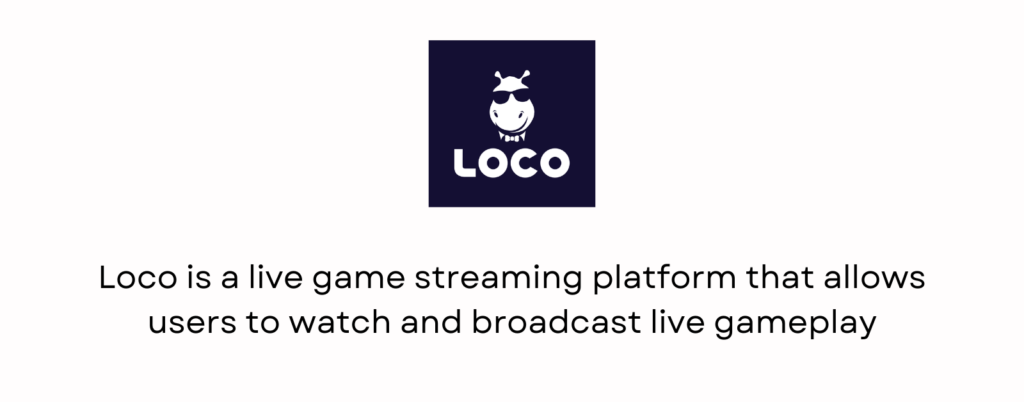
Loco is a live game streaming platform that allows users to watch and broadcast live gameplay. Founded in 2018 by Anirudh Pandita and Ashwin Suresh, Loco has garnered a dedicated user base by hosting gaming tournaments, live chats, and interactive sessions. The platform aims to create a community around gaming and esports in India.
| Details | Information |
|---|---|
| Founder | Anirudh Pandita, Ashwin Suresh |
| Founded | 2018 |
| Headquarters | Mumbai, Maharashtra |
| Key Services | Live game streaming, gaming community |
| Website | getloconow.com |
Loco has raised significant funding to expand its operations and enhance its platform. Notable investors include Krafton (the makers of PUBG), Lumikai, and Hero Group. Loco aims to expand its content offerings, including more game titles and non-gaming content like live quizzes and entertainment streams.
The platform is also focusing on enhancing its technology infrastructure to support high-quality streaming and user experience.
Frequently asked questions about Social Media Startups in India:
Q1: What are social media startups in India? Social media startups in India are emerging companies that provide platforms for users to create, share, and interact with content. These startups often focus on specific niches such as short videos, regional languages, or specialized communities.
Q2: Why are social media startups important in India? Social media startups are important in India because they cater to the diverse linguistic and cultural preferences of the population. They fill gaps left by global platforms by offering localized content and fostering community engagement.
Q3: How do social media startups differ from established platforms like Facebook and Twitter? Social media startups often differentiate themselves by focusing on specific demographics or content types. They may provide features tailored to local languages, cultural norms, and regional interests, which global platforms may overlook.
Q4: What are the key services offered by social media startups in India? Key services offered by social media startups in India include short video sharing, regional content creation, microblogging, live streaming, and community-based interactions. These services aim to engage users through localized and culturally relevant content.
Q5: How do social media startups monetize their platforms? Social media startups typically monetize through advertisements, in-app purchases, sponsored content, and premium subscriptions. Some also explore partnerships with brands and creators for promotional activities.
Q6: How do social media startups in India ensure user privacy and data security? Social media startups in India prioritize user privacy and data security by implementing robust data protection measures, complying with relevant regulations such as the Personal Data Protection Bill, and providing transparency about data practices through privacy policies.
Q7: What challenges do social media startups face in India’s competitive market? Social media startups in India face challenges such as competition from global giants, acquiring and retaining users, scaling operations, navigating regulatory frameworks, and adapting to diverse cultural preferences and languages across the country.
Q8: How do social media startups contribute to digital inclusion in India? Social media startups contribute to digital inclusion in India by providing platforms that support regional languages, creating content relevant to diverse cultural contexts, offering accessible and user-friendly interfaces, and empowering individuals and communities to participate in the digital economy.
Q9: What are some notable success stories of social media startups in India? Some notable success stories of social media startups in India include platforms that have gained significant user adoption, impacted popular culture, or successfully monetized their services through innovative business models and strategic partnerships.
Q10: How do social media startups adapt to changing user preferences and trends in India? Social media startups in India adapt to changing user preferences and trends by conducting market research, analyzing user behavior and feedback, iterating on product features, collaborating with influencers and content creators, and leveraging data-driven insights to enhance user engagement and platform usability.
conclusion:
India’s social media startup ecosystem continues to evolve, driven by a deep understanding of local nuances and a commitment to user engagement. These platforms have not only reshaped how Indians consume and create content but have also contributed significantly to digital inclusion and cultural representation. As they continue to innovate and expand, these startups are poised to play an increasingly influential role in shaping India’s digital future.
Also Read:
Top 10 HealthTech Startups in India
Top 10 Fintech Startups in India
Top 10 Agritech Startups in India
Top 10 CleanTech Startups in India
Top 10 InsurTech Startups in India
Top 10 LegalTech Startups in India
Top 10 GovTech Startups in India
Top 10 RetailTech Startups in India
Top 10 PropTech Startups in India
Top 10 FoodTech Startups in India
Top 10 Edutech Startups in India
Top 10 TravelTech Startups in India
Top 10 Mobility Startups in India
Top 10 FashionTech Startups in India
Top 10 HRTech Startups in India
Top 10 AdTech Startups in India
Top 10 BeautyTech Startups in India
Top 10 ConstructionTech Startups in India
Top 10 Cybersecurity Startups in India
Last Updated on Sunday, June 16, 2024 6:49 pm by Maharashtra Newswire Team
